
Tobago Cays Marine Park: A Caribbean Gem
Tobago Cays Marine Park is a stunning collection of small islands and coral reefs located in the southern Grenadines. This is one of the most beautiful places to visit in the Caribbean. Known for its clear turquoise waters, white sandy beaches, and rich marine life, it is a paradise for nature lovers and adventure seekers alike. The park comprises five uninhabited cays: Petit Rameau, Petit Bateau, Baradal, Jamesby, and Petit Tabac. Each island offers something unique, from scenic hiking trails to secluded beaches. Snorkeling and diving are particularly popular here, as the coral reefs are teeming with colorful fish, sea turtles, and other marine creatures. For those who prefer to stay above water, the calm bays are perfect for sailing and kayaking. Besides its natural beauty, Tobago Cays Marine Park also has a rich cultural history. The cays have been used as filming locations for various movies, adding a touch of Hollywood glamour to their natural allure. Visitors can also enjoy local cuisine on nearby inhabited islands like Union Island or Mayreau, where fresh seafood and Caribbean flavors are always on the menu.
Local tips in Tobago Cays Marine Park
- Bring your own snorkeling gear if possible; rentals can be limited and expensive.
- Pack plenty of sunscreen and a hat; shade can be scarce on the beaches.
- Arrange boat transport in advance; it’s the best way to reach the cays.
- Visit during the dry season (December to May) for the best weather.
- Check local regulations and guidelines to protect the fragile marine environment.
Tobago Cays Marine Park: A Caribbean Gem
Tobago Cays Marine Park is a stunning collection of small islands and coral reefs located in the southern Grenadines. This is one of the most beautiful places to visit in the Caribbean. Known for its clear turquoise waters, white sandy beaches, and rich marine life, it is a paradise for nature lovers and adventure seekers alike. The park comprises five uninhabited cays: Petit Rameau, Petit Bateau, Baradal, Jamesby, and Petit Tabac. Each island offers something unique, from scenic hiking trails to secluded beaches. Snorkeling and diving are particularly popular here, as the coral reefs are teeming with colorful fish, sea turtles, and other marine creatures. For those who prefer to stay above water, the calm bays are perfect for sailing and kayaking. Besides its natural beauty, Tobago Cays Marine Park also has a rich cultural history. The cays have been used as filming locations for various movies, adding a touch of Hollywood glamour to their natural allure. Visitors can also enjoy local cuisine on nearby inhabited islands like Union Island or Mayreau, where fresh seafood and Caribbean flavors are always on the menu.
When is the best time to go to Tobago Cays Marine Park?
Iconic landmarks you can’t miss
Tobago Cays
Discover the untouched beauty of Tobago Cays, a stunning archipelago in the Caribbean known for its crystal-clear waters, vibrant marine life, and breathtaking landscapes.
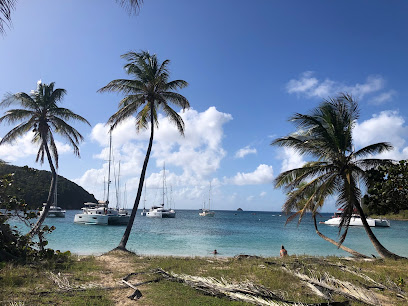
Turtle Watching Reserve
Discover the enchanting Turtle Watching Reserve at Tobago Cays Marine Park, where breathtaking nature meets unforgettable marine adventures.
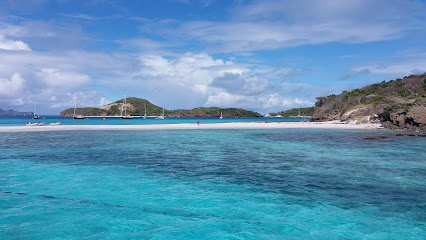
Petit Tabac
Experience the serene beauty of Petit Tabac, a hidden Caribbean island paradise known for its pristine beaches and tranquil atmosphere.
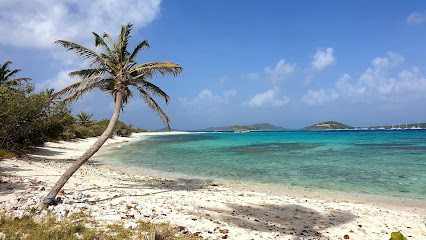
Petit Bateau
Experience the serene beauty of Petit Bateau in the Tobago Cays, a perfect escape for nature lovers and adventurers alike.
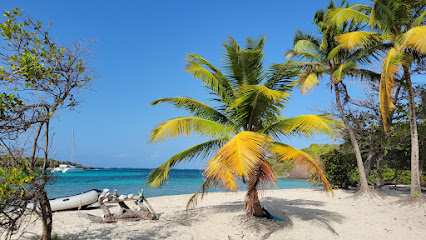
Skipper Raini's Ankerplatz, In Gedenken an Raini
Discover the natural beauty and serenity of Skipper Raini's Ankerplatz in Tobago Cays Marine Park, a Caribbean paradise for adventure seekers and nature lovers.
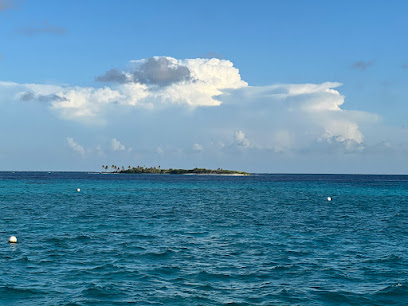
Unmissable attractions to see
Annandale Waterfall & Forest Park
Experience the natural beauty and tranquility of Annandale Waterfall & Forest Park, a hidden gem in Grenada's lush landscape.
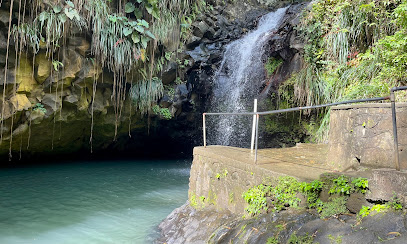
Bequia Tourism Association
Experience the breathtaking beauty and rich culture of Bequia, a hidden gem in the Caribbean perfect for relaxation and adventure.
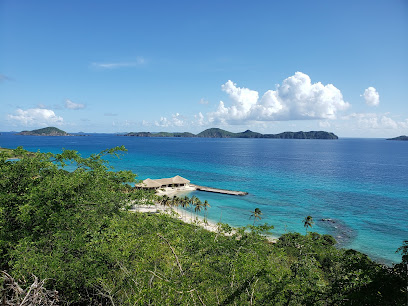
Rawacou Recreational Park
Discover the idyllic landscapes and vibrant wildlife at Rawacou Recreational Park, the perfect escape for nature lovers in Argyle.
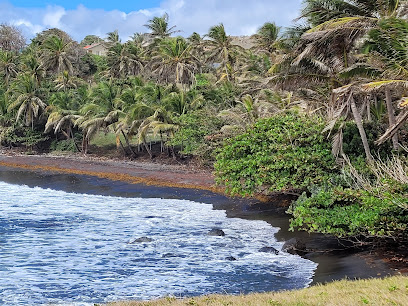
Happy Island
Explore Happy Island, a tropical paradise in the Grenadines, offering vibrant flavors, stunning views, and a laid-back Caribbean experience.
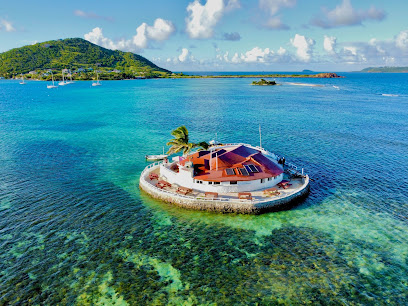
Tyrell Bay Beach
Experience the tranquil beauty of Tyrell Bay Beach in Grenada, where golden sands meet crystal-clear waters for a perfect tropical getaway.
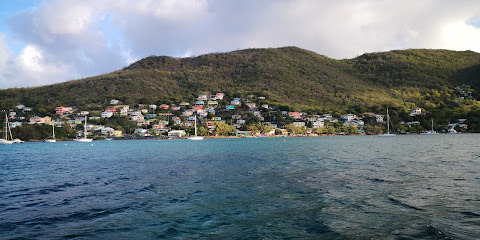
River Sallée Boiling Springs
Experience the healing warmth of River Sallée Boiling Springs, a natural wonder in Grenada that captivates with its serene beauty and geothermal magic.
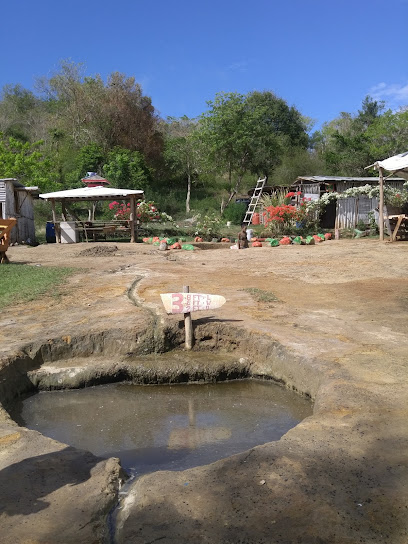
National Trust
Explore the captivating National Trust in Kingstown, where the rich history and vibrant culture of St. Vincent come alive through engaging exhibits.
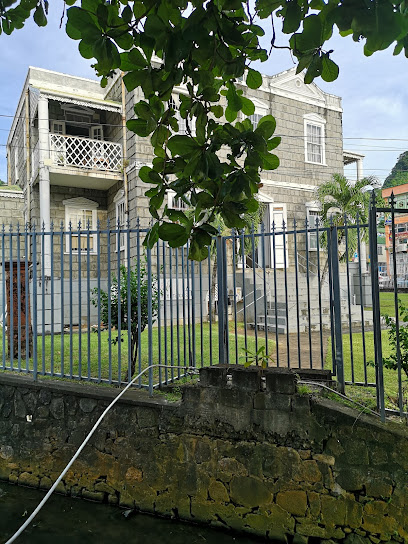
Fort Duvernette
Explore Fort Duvernette, a historic fortress offering breathtaking views and a deep dive into Saint Vincent's rich colonial past.
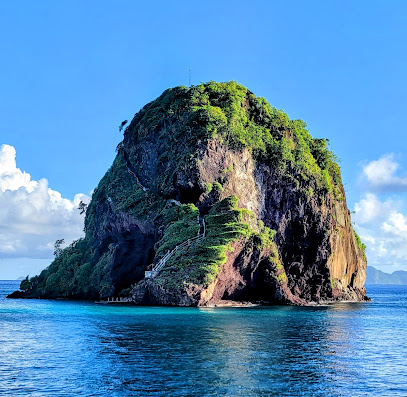
Anse La Roche Bay
Discover the serene beauty of Anse La Roche Bay, Grenada's hidden nature preserve with stunning beaches and vibrant marine life.
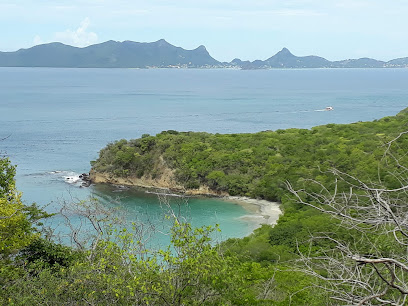
Montreal Gardens
Experience the lush beauty and tranquility of Montreal Gardens, a botanical paradise in Mesopotamia, ideal for relaxation and exploration.
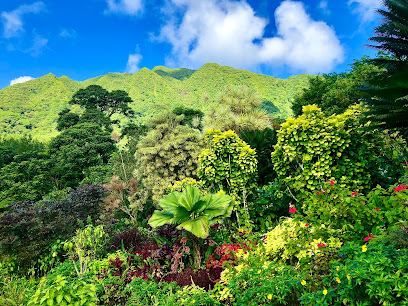
Captain Hugh Mulzac Square
Experience tranquility and natural beauty at Captain Hugh Mulzac Square in Clifton, a perfect park for relaxation and local culture.
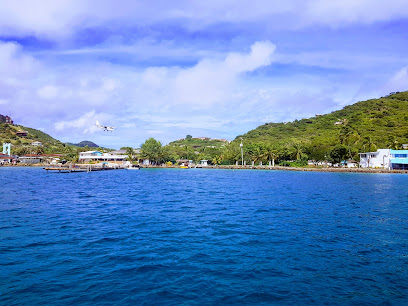
Petit Byahaut
Explore the serene beauty of Petit Byahaut, a nature preserve in Buccament, ideal for relaxation and immersing in the Caribbean's natural wonders.
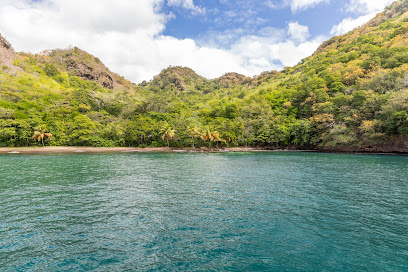
Froggy's Reef Tours/Snorkeling Carriacou
Discover vibrant coral reefs and diverse marine life with Froggy's Reef Tours in Carriacou, Grenada. A snorkeling paradise awaits.

Cruise Pirs Kingstown
Experience the lively Cruise Pirs in Kingstown, a vibrant hub of culture, cuisine, and stunning Caribbean views that captures the essence of St. Vincent.
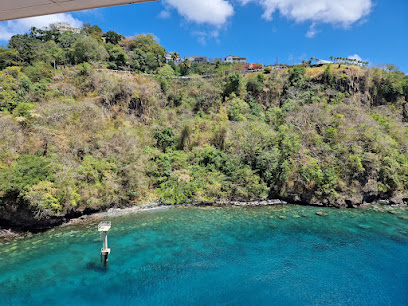
Spring View Park
Explore the lush landscapes and serene vibes of Spring View Park in Port Elizabeth, a perfect retreat for nature lovers and relaxation seekers.
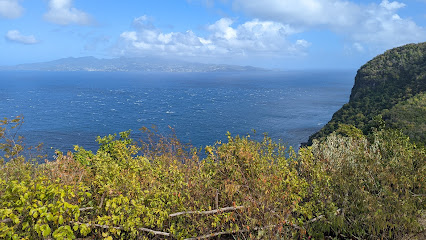
Essential places to dine
Alphonso‘s Lobster BBQ Tobago cays
Experience unforgettable seafood dining at Alphonso's Lobster BBQ nestled in Tobago Cays' pristine paradise.
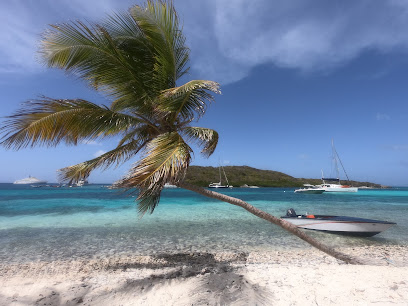
Romeo lobster BBQ and beach party
Discover fresh seafood delights at Romeo Lobster BBQ and Beach Party in Tobago Cays – where culinary excellence meets breathtaking views.
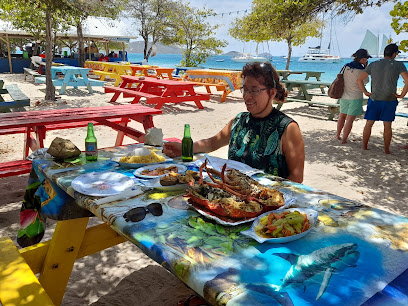
Mandy man beach BBQ
Experience fresh seafood delights at Mandy Man Beach BBQ on Petit Rameau - where stunning ocean views meet Caribbean flavors.
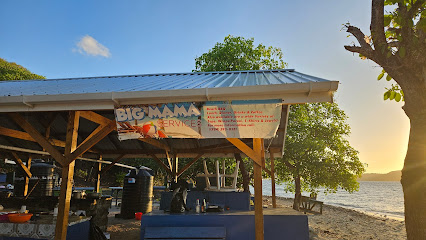
Big mama BBQ
Experience authentic Caribbean barbecue at Big Mama BBQ, nestled in Tobago Cays Marine Park's stunning natural beauty.
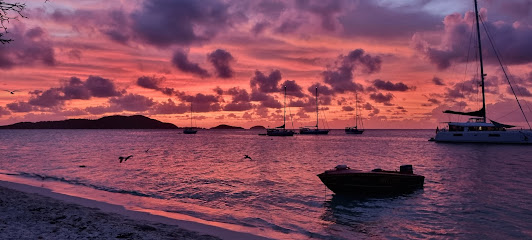
Captain kojak and aquila's beach bar b q
Experience authentic Caribbean cuisine with stunning ocean views at Captain Kojak and Aquila's Beach Bar B Q on St. Vincent.
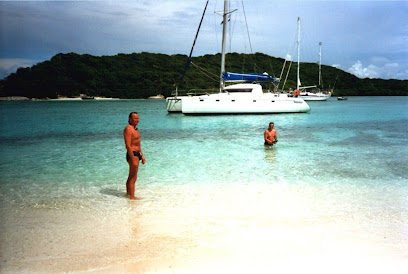
Carlos beach BBQ
Experience authentic Caribbean flavors at Carlos Beach BBQ while enjoying stunning views in Tobago Cays.
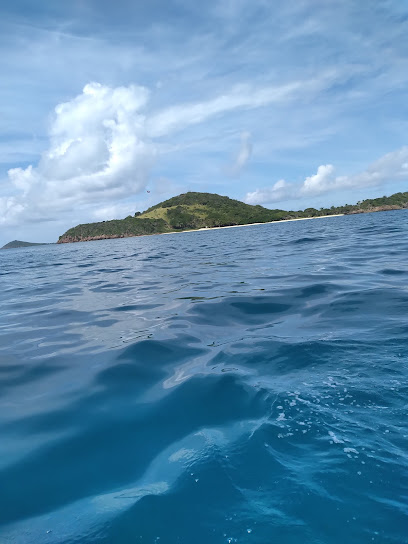
Mr. Best Beach BBQ
Discover delightful barbecue at Mr. Best Beach BBQ in Clifton - where every dish tells a story of Caribbean flavor.
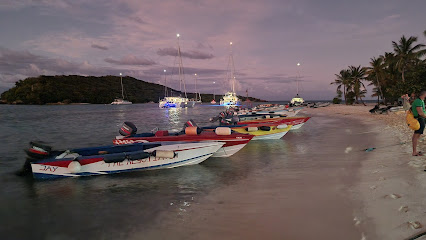
Michaelangelo's Lobster BBQ
Experience unparalleled flavors at Michaelangelo's Lobster BBQ in Clifton - where fresh seafood meets traditional barbecue techniques.
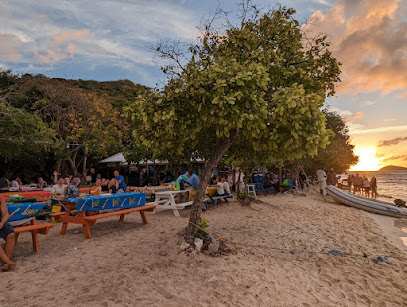
Serenity Water Taxi and Beach Bbq
Experience the best barbecue on Union Island at Serenity Water Taxi and Beach BBQ, where flavor meets stunning ocean views.
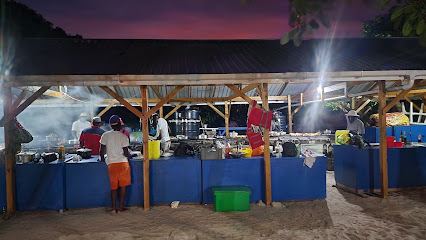
Markets, malls and hidden boutiques
Hutchinson's Variety Store
Explore Hutchinson's Variety Store in Ashton for a true taste of Central Union Island - local goods, fresh produce, and vibrant culture await!
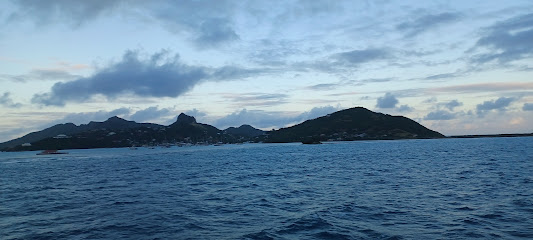
Adon's Syrian Store
Discover unique Syrian products at Adon's Syrian Store in Clifton, a charming general store offering a taste of authentic culture.
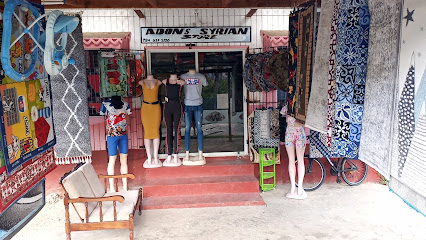
The Salty Girl Boutique
Explore the vibrant treasures of The Salty Girl Boutique on Union Island, where unique local crafts and friendly service await every tourist.
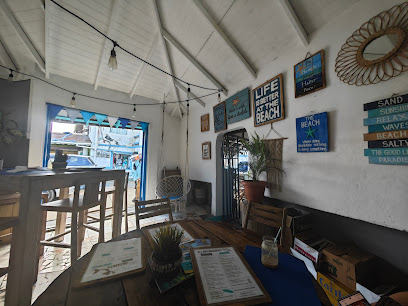
Rebecca's Place Minimart
Discover the heart of Clifton at Rebecca's Place Minimart, where local goods and warm hospitality meet for an unforgettable shopping experience.
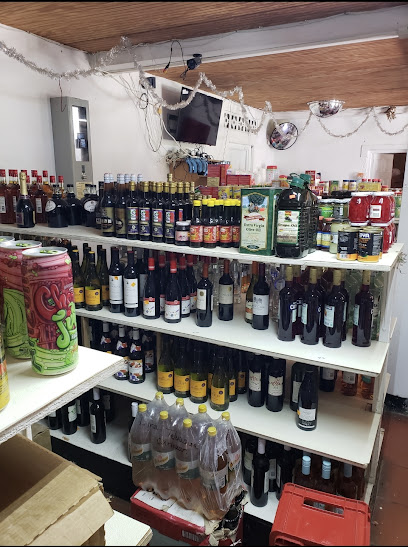
First Stop Supermarket
Discover the charm of Mayreau at First Stop Supermarket, your go-to grocery store for local flavors and essential supplies while exploring the island.
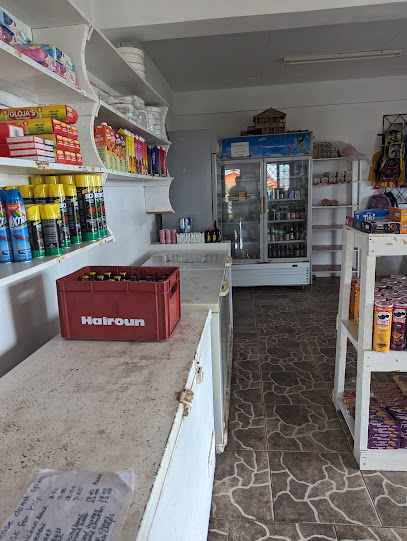
S&D Mini Mart
Discover the local flavors at S&D Mini Mart in Ashton, Union Island, your go-to grocery store for essentials and unique souvenirs.
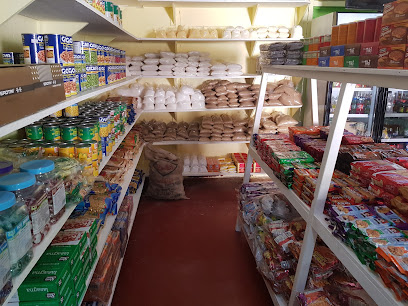
Gypsea Café
Discover Gypsea Café, a cozy café by Frigate Lagoon offering delectable local dishes and boutique shopping for a perfect island getaway.
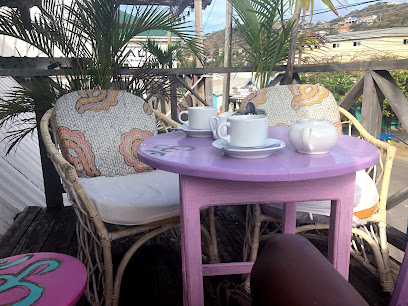
The Beauty Addict Obsessions
Discover the ultimate beauty destination at The Beauty Addict Obsessions in Clifton, Union Island, where luxury meets personalized care.

Simon’s Bakery & take way lunch
Explore the delightful flavors at Simon’s Bakery & Takeaway Lunch in Clifton, where fresh pastries and quick bites await your taste buds.

Sweet & Salty Food & Drink
Explore local flavors and unique products at Sweet & Salty Food & Drink on Union Island, where every visit offers a taste of the Caribbean.
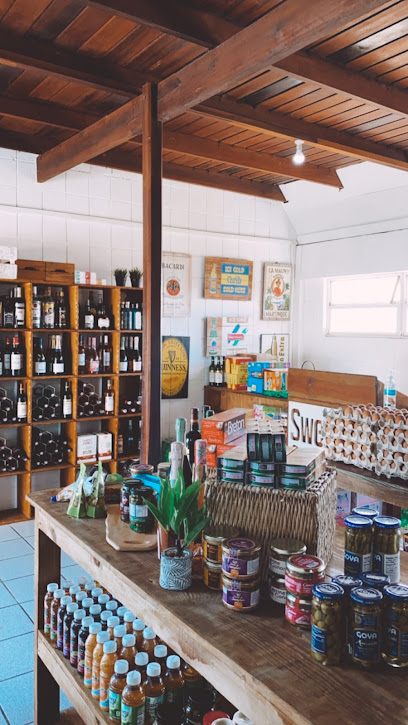
Grenadines Gold
Explore Grenadines Gold, your organic paradise in the Caribbean, offering fresh local produce and eco-friendly products for a sustainable lifestyle.
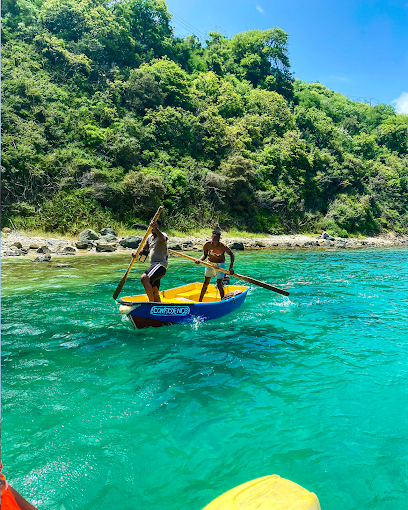
G & E Circle Center
Explore the vibrant G & E Circle Center in Clifton, where shopping, dining, and entertainment come together for an unforgettable experience.
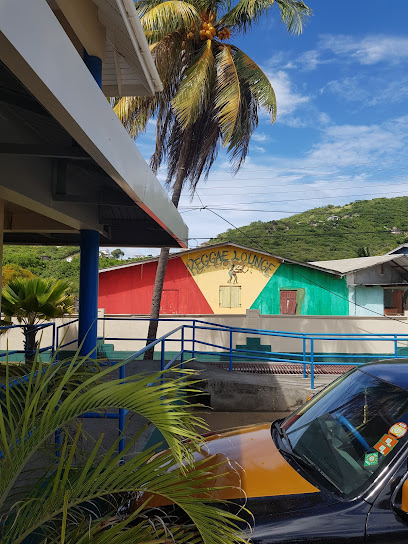
Sandy feet gift shop
Explore Sandy Feet Gift Shop in Saline Bay, Mayreau for unique Caribbean souvenirs and local crafts that capture the island's spirit.
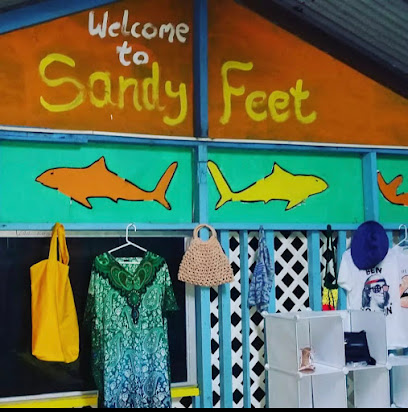
The Garden Boutique
Discover unique fashion and local artistry at The Garden Boutique in Port Elizabeth, a must-visit clothing store for every traveler.
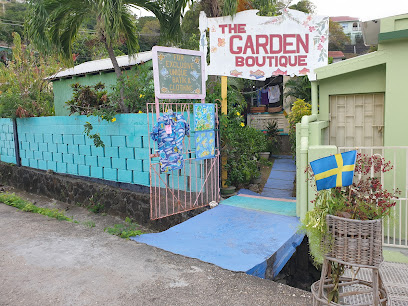
Arthur’s Convenience Store
Discover the local charm and essentials at Arthur's Convenience Store in Mayreau, a must-visit for every tourist looking to explore.
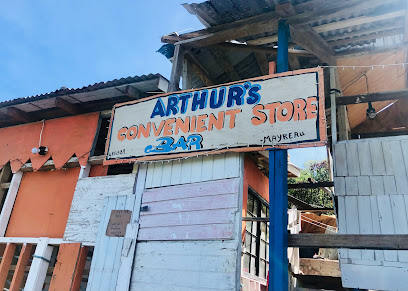
Essential bars & hidden hideouts
Alphonso‘s Lobster BBQ Tobago cays
Experience the best of Caribbean cuisine at Alphonso's Lobster BBQ in Tobago Cays, where fresh seafood and stunning views await.
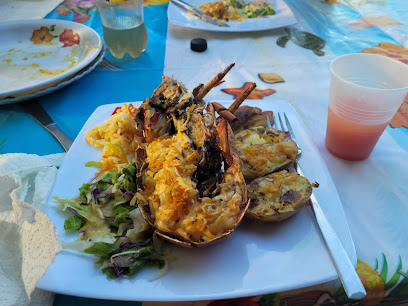
Romeo lobster BBQ and beach party
Savor exquisite lobster dishes in a lively beach atmosphere at Romeo Lobster BBQ and Beach Party, Tobago Cays.
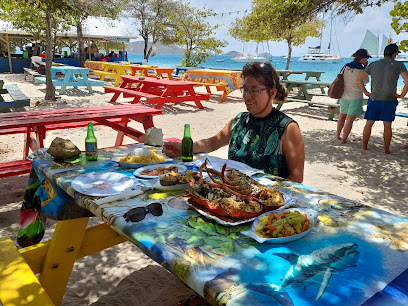
Tipsy Turtle Bar and Restaurant
Discover the lively Tipsy Turtle Bar and Restaurant in Clifton, where delicious food meets vibrant nightlife and stunning views.
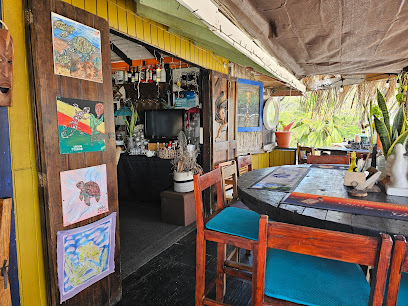
Nadi's Bar & Restorante
Experience Caribbean dining at Nadi's Bar & Restorante in Mayreau, where fresh flavors and stunning views await every visitor.
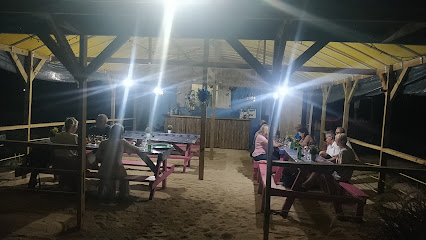
Happy Bar
Experience Clifton's nightlife at Happy Bar, where vibrant drinks and local culture meet in a cozy atmosphere perfect for relaxation.
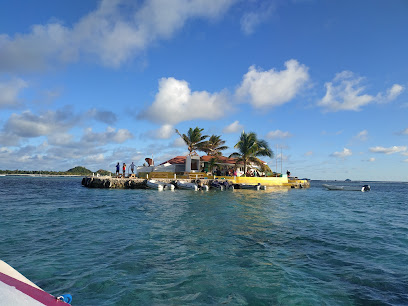
Lolo’s bar
Experience the warmth of the Caribbean at Lolo's Bar in Mayreau, where every sip and bite is infused with local flavor and island spirit.
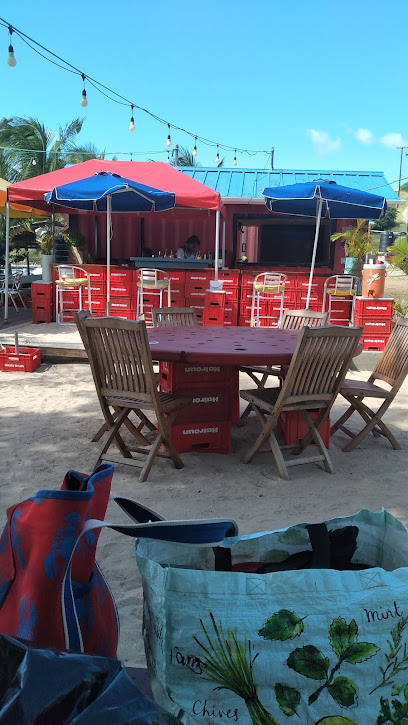
Mandy man beach BBQ
Experience the best of Caribbean seafood dining at Mandy Man Beach BBQ, where every dish is a celebration of flavor and the ocean's bounty.
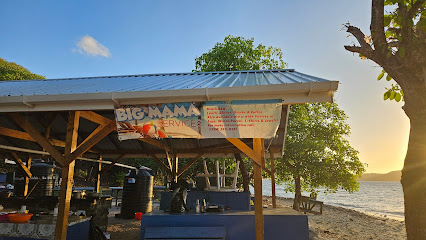
Big mama BBQ
Savor the authentic flavors of Caribbean barbecue at Big Mama BBQ, nestled in the breathtaking Tobago Cays Marine Park.
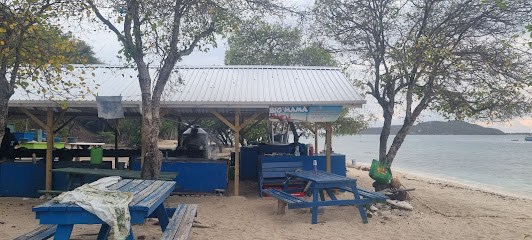
Honey Cone bar and restaurant
Experience the vibrant atmosphere and delectable local cuisine at Honey Cone Bar and Restaurant, a must-visit destination on Mayreau Island.
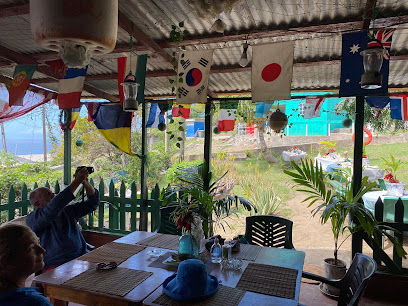
Black Boy And Debbie - Beach Bar & Restauration
Discover the perfect beachside dining experience at Black Boy And Debbie, where delicious grilled cuisine meets breathtaking ocean views.
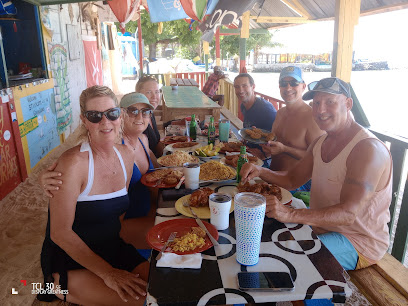
Captain kojak and aquila's beach bar b q
Experience the best of Caribbean cuisine at Captain Kojak and Aquila's Beach Bar B Q, where delicious barbecue meets stunning beachfront views.
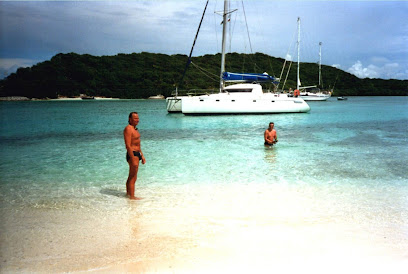
Carlos beach BBQ
Experience the best of Caribbean cuisine at Carlos Beach BBQ, located in the breathtaking Tobago Cays, Kingstown.
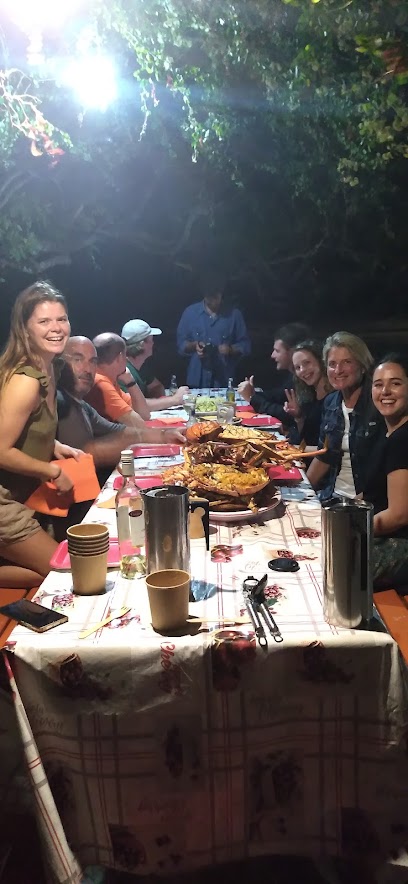
Scooby's Sports Bar
Discover the vibrant atmosphere of Scooby's Sports Bar in Canouan, where drinks flow and fun never stops!
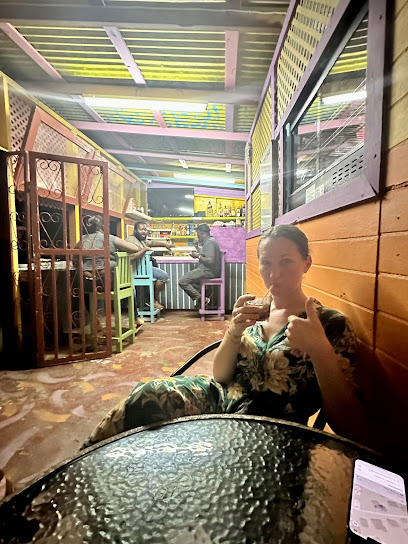
Coconut Bar & Grill
Discover the perfect blend of tropical relaxation and local flavors at Coconut Bar & Grill, your go-to destination for drinks and dining.
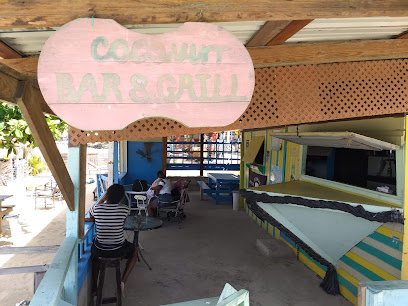
Local Phrases about Tobago Cays Marine Park
-
- HelloWah gwan
[wah gwan] - GoodbyeLater
[lay-ter] - YesYes
[yes] - NoNo
[no] - Please/You're welcomePlease
[please] - Thank youTank yuh
[tank yuh] - Excuse me/SorryPardon me
[pahr-dun me] - How are you?How yuh doin?
[how yuh doin] - Fine. And you?Mi good. An yuh?
[mee good. an yuh] - Do you speak English?Yuh speak English?
[yuh speak english] - I don't understandMi nah understan
[mee nah un-der-stand]
- HelloWah gwan
-
- I'd like to see the menu, pleaseMi wah see di menu, please
[mee wah see dee menu, please] - I don't eat meatMi nuh eat meat
[mee nuh eat meat] - Cheers!Cheers!
[cheers] - I would like to pay, pleaseMi wah pay, please
[mee wah pay, please]
- I'd like to see the menu, pleaseMi wah see di menu, please
-
- Help!Help!
[help] - Go away!Go wey!
[go way] - Call the Police!Call di Police!
[call dee police] - Call a doctor!Call ah doctor!
[call ah doctor] - I'm lostMi loss
[mee loss] - I'm illMi sick
[mee sick]
- Help!Help!
-
- I'd like to buy...Mi wah buy...
[mee wah buy] - I'm just lookingMi jus lookin
[mee jus look-in] - How much is it?How much it cost?
[how much it cost] - That's too expensiveDat too dear
[dat too dear] - Can you lower the price?Yuh cud drop di price?
[yuh cud drop dee price]
- I'd like to buy...Mi wah buy...
-
- What time is it?What time it is?
[what time it is] - It's one o'clockIt one o'clock
[it one o'clock] - Half past (10)Half ten
[half ten] - MorningMornin
[morn-in] - AfternoonAfternoon
[after-noon] - EveningEvenin
[even-in] - YesterdayYestaday
[yes-ta-day] - TodayToday
[to-day] - TomorrowTomorrow
[to-mor-row] - 11
[1] - 22
[2] - 33
[3] - 44
[4] - 55
[5] - 66
[6] - 77
[7] - 88
[8] - 99
[9] - 1010
[10]
- What time is it?What time it is?
-
- Where's a/the...?Wey di...dey?
[way dee dey] - What's the address?Wah di address?
[wah dee address] - Can you show me (on the map)?Yuh cud show me (on di map)?
[yuh cud show me (on dee map)] - When's the next (bus)?When di next (bus)?
[when dee next (bus)] - A ticket (to ....)Ah ticket (to ....)
[ah ticket (to ....)]
- Where's a/the...?Wey di...dey?
History of Tobago Cays Marine Park
-
Before European colonization, the Tobago Cays area was inhabited by the Kalinago people, also known as Caribs. These indigenous people lived in harmony with the land and sea, utilizing the rich marine resources for sustenance and trade. Their presence left a lasting imprint on the cultural and historical landscape of the region.
-
In the late 15th and early 16th centuries, European explorers, including Christopher Columbus, navigated the Caribbean waters, marking the beginning of European interest in the area. The French and British subsequently vied for control over the Grenadines, including the Tobago Cays, bringing with them colonial influence and transforming the islands’ social and economic structures.
-
During the 17th and 18th centuries, the waters around the Tobago Cays were frequented by pirates and privateers. The strategic location of the islands made them an ideal hideout for figures like Blackbeard and Captain Kidd. Tales of hidden treasures and pirate lore still captivate visitors and historians alike.
-
The Tobago Cays, like many Caribbean islands, were part of the transatlantic slave trade. Enslaved Africans were brought to the region to work on sugar and cotton plantations. The harsh realities of this period are a somber part of the islands' history, and the cultural impact of African heritage remains significant in the local culture and traditions.
-
In 1997, the Tobago Cays Marine Park was established as a protected area to conserve the unique marine biodiversity and ecosystems. The park encompasses five uninhabited cays and their surrounding coral reefs, seagrass beds, and mangroves. Today, it is a haven for marine life and a popular destination for snorkeling, diving, and eco-tourism.
-
Efforts to preserve the cultural heritage and natural beauty of the Tobago Cays have been ongoing. Local communities, in collaboration with international organizations, have worked towards sustainable tourism and conservation practices. The park is not only a site of natural wonder but also a testament to the resilience and cultural richness of its people.
Tobago Cays Marine Park Essentials
-
The Tobago Cays Marine Park is located in the southern Grenadines of Saint Vincent and the Grenadines. The most common way to get there is by flying into the Argyle International Airport in Saint Vincent. From there, you can take a ferry or a domestic flight to Union Island, which is the closest island to the Tobago Cays. Private charters and water taxis are also available from Union Island to the Tobago Cays.
-
Transportation within the Tobago Cays Marine Park is primarily by boat, as the cays are composed of several uninhabited islands and coral reefs. Water taxis and charter boats are widely available and are the best means to explore the cays. Kayaking and sailing are also popular options for getting around. It is advisable to arrange transportation in advance, especially during peak tourist seasons.
-
The official currency of Saint Vincent and the Grenadines is the Eastern Caribbean Dollar (XCD). US dollars are also widely accepted. Credit cards are accepted in most hotels, restaurants, and larger shops on Union Island, but it is a good idea to carry some cash for smaller vendors and when visiting the more remote cays. ATMs are available on Union Island.
-
The Tobago Cays Marine Park is generally safe for tourists. However, as with any travel destination, it is important to remain vigilant. Petty theft can occur, so keep your belongings secure and avoid leaving valuables unattended. There are no specific high-crime areas targeting tourists within the marine park, but it is always best to stay aware of your surroundings.
-
In case of emergency, dial 911 for immediate assistance. Union Island has a medical clinic that can handle minor injuries and illnesses. For more serious medical issues, it may be necessary to travel to the main island of Saint Vincent. It is highly recommended to have travel insurance that covers medical emergencies and evacuation. Additionally, ensure you have a marine radio or mobile phone with you when exploring the cays.
-
Fashion: Do wear light, breathable clothing suitable for tropical weather. Don’t forget to carry sun protection, including hats and sunscreen. Religion: There are no specific religious customs to follow in the cays, but always show respect when visiting any cultural sites. Public Transport: Transportation is mostly by boat, so do respect the local regulations and the environment. Greetings: Do greet locals with a friendly 'hello' or 'good day'. Eating & Drinking: Do try the local seafood and Caribbean cuisine. Don't leave litter behind; always dispose of waste properly to protect the marine environment.
-
To experience the Tobago Cays Marine Park like a local, consider visiting during off-peak times to avoid the crowds. Engage with local guides who can offer insights into the best snorkeling and diving spots. Take part in a sailing trip to fully appreciate the beauty of the cays. Don't miss the opportunity to swim with the sea turtles at Baradal Turtle Sanctuary. Lastly, join a local beach barbecue to enjoy fresh seafood and traditional Caribbean dishes.
Nearby Cities to Tobago Cays Marine Park
-
Things To Do in Union Island
-
Things To Do in Canouan
-
Things To Do in Hillsborough
-
Things To Do in Mustique
-
Things To Do in Port Elizabeth
-
Things To Do in Bequia
-
Things To Do in Sauteurs
-
Things To Do in Kingstown
-
Things To Do in Victoria
-
Things To Do in Grenville
-
Things To Do in Guava
-
Things To Do in Gouyave
-
Things To Do in Barrouallie
-
Things To Do in Chateaubelair
-
Things To Do in Georgetown








